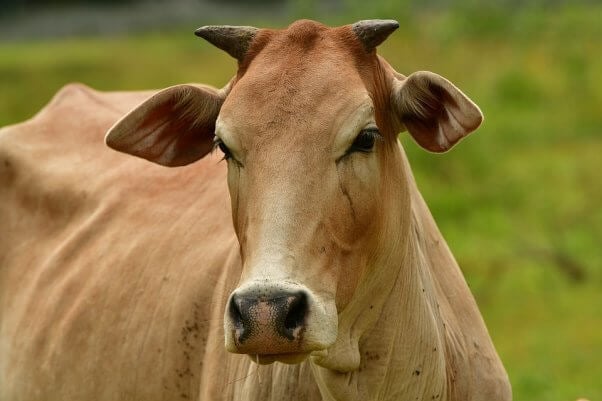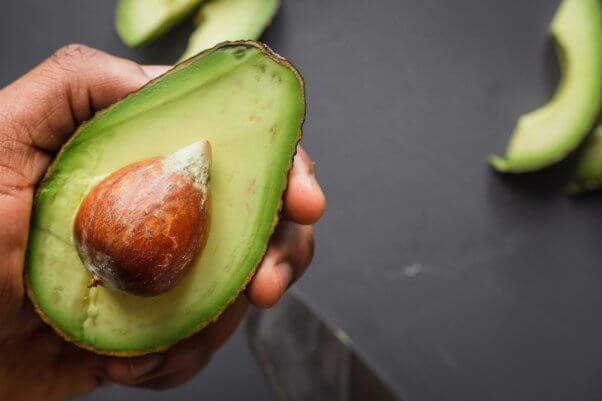There’s been some internet noise about frying food with oil tallow. But is beef tallow bad for you?
What Is Beef Tallow?
Beef tallow is a rendered form of fat taken from cows. Workers kill the cows, then melt down the hard, white fatty layer around their organs. Beef tallow is sometimes called “beef drippings.”
People might remember when restaurants used beef tallow to make French fries, but due to the concern over high levels of saturated fat and the rise of vegan oils, most establishments eliminated it as an ingredient.

In the beef tallow industry, living beings endure routine mutilation—including branding, castration, and dehorning—which causes excruciating, prolonged suffering. Cows are gentle, social animals. They have the ability to recognize more than 100 other cows, and they form close friendships with members of their herd. Researchers report that cows grieve when their friends or family members die. At the slaughterhouse, cows are treated as commodities. Metal rods are shot through their brains, they are hung upside down, and their throats are slit. Because line speeds are so fast, many animals are still conscious throughout the process and must watch as workers kill their loved ones.
Is Eating Beef Tallow Bad for You?
Yes. If you care about your health, it’s best to avoid “rendered” animal fat in your food.
Beef tallow is high in saturated fat. According to registered dietician Toby Amidor, best-selling author of Health Shots, “Beef tallow provides 6 grams of artery-clogging saturated fat per 1-tablespoon serving.” Saturated fat raises cholesterol levels and increases the risk of heart disease.
The dangers to your health don’t stop there. Studies suggest that beef tallow may promote inflammation in the body, which contributes to chronic diseases such as arthritis and cancer.
Beef tallow may contain contaminants such as pesticides, hormones, and antibiotics. The toxins and pollutants stored in cows’ fat tissues eventually make their way into the humans who eat them.
Is Beef Tallow Bad for Your Skin?
If you want to avoid acne and blackheads, avoid beef tallow on your skin as it’s comedogenic. Comedogenic substances block pores, which can cause blackheads.
Don’t be surprised if you smell, either. Skincare companies and consumers alike typically describe the animal-like smell as “fatty” or “beefy.”
Is Beef Tallow Bad for the Environment?
Runoff from farms is one of the leading causes of pollution in our rivers and lakes. The U.S. Environmental Protection Agency notes that bacteria and viruses can be carried by the runoff and that groundwater can be contaminated. Numerous studies and government reports have shown higher rates of miscarriages, respiratory problems, and neurological diseases among people who live near farms.
By some estimates, animal agriculture is responsible for more greenhouse gases than all of the world’s transportation systems combined. According to the United Nations, a global shift toward being vegan is vital if we are to combat the worst effects of the climate catastrophe.
Beef Tallow Is a Fleeting Trend
As recently as the 1950s, doctors used to prescribe cigarettes to their patients. And now that we live in a social media world, inundated with health “information,” getting to the truth about what’s really good for our bodies can feel even more overwhelming.
Rumors are flying about beef tallow. The truth is that it’s dangerous. Meat and dairy aren’t doing you any favors, either. Statistics prove the single best thing you can do for your health is to go vegan. People who eat animal-free have a lower risk of death from heart disease, strokes, and cancer.

Avocado and extra-virgin olive oil are both high in omega-3 fatty acids, and any oil made from plants is better than using animal fat such as beef tallow.
Animals are not ours to abuse. They are complex, sensitive beings who feel physical pain—and that’s the truth. Please, go vegan.
Text VEG to 73822 to get the latest vegan lifestyle tips, recipes, and urgent action alerts texted right to your phone.
Terms for automated texts/calls from PETA: https://peta.vg/txt. Text STOP to end, HELP for more info. Msg/data rates may apply. U.S. only.







